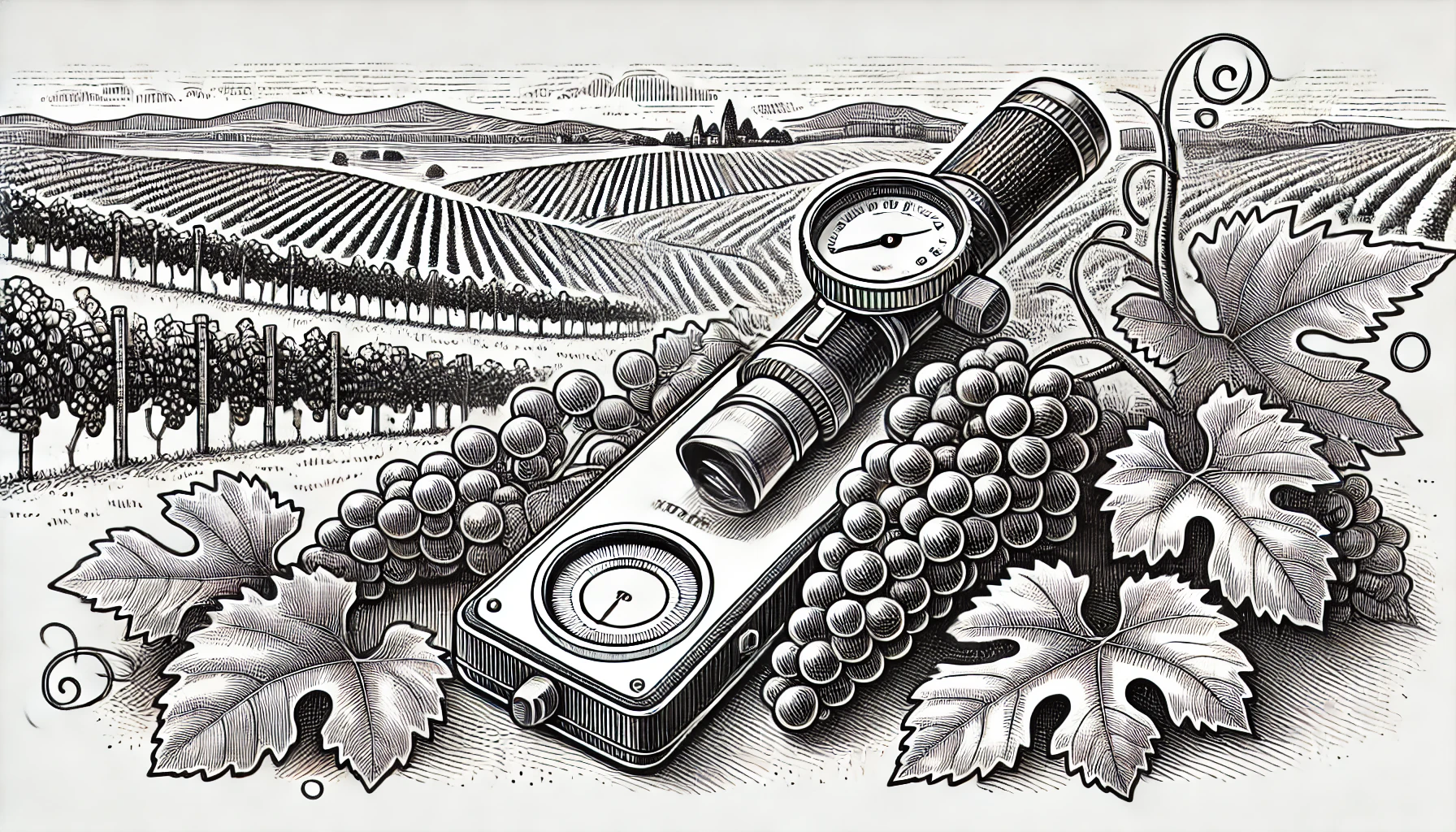
Brix is a term used to measure the sugar content of grapes or wine. The scale is named after Adolf Brix, a 19th-century German scientist who developed a method to calculate the density of liquids. It is measured as a percentage, where one degree Brix equals one gram of sugar per 100 grams of solution.
In the wine world, it is an important metric for determining the ripeness of grapes at harvest. Grapes with higher Brix levels are riper and will typically produce wine with higher alcohol content because more sugar is available to ferment into alcohol. Winemakers usually measure the Brix of their grapes regularly as the harvest season approaches, aiming for an ideal balance between sugar and acidity.
Brix in Still Wines
Most still wines, the typical level at harvest is between 22 and 26 degrees, depending on the grape variety and the style of wine being made. For instance, a light, crisp white wine like Sauvignon Blanc might be harvested at 21 or 22 degrees, while a richer, full-bodied red like Zinfandel might be harvested at 24 or 25 degrees Brix. For dessert wines, which require more sugar for fermentation, Brix levels can be much higher, sometimes exceeding 30 degrees.
It can also influence other aspects of wine production, such as fermentation. The more sugar a grape contains, the more heat is produced during fermentation, which can impact how the wine develops. Winemakers must carefully manage fermentation temperatures, especially when working with high-Brix grapes, to ensure the wine maintains balance and does not become overly alcoholic.
In addition to winemaking, Brix is also used in brewing, fruit processing, and even honey production, making it a versatile tool across various industries. Despite its widespread use, it is not the only method for measuring sugar content. In Europe, the Oechsle scale is commonly used, while in the U.S., specific gravity measurements are often preferred by home brewers and smaller winemakers.
Curious about more wine terms and insights? Visit our Wine Wiki section and explore the basic wine terms for expert definitions and tips!